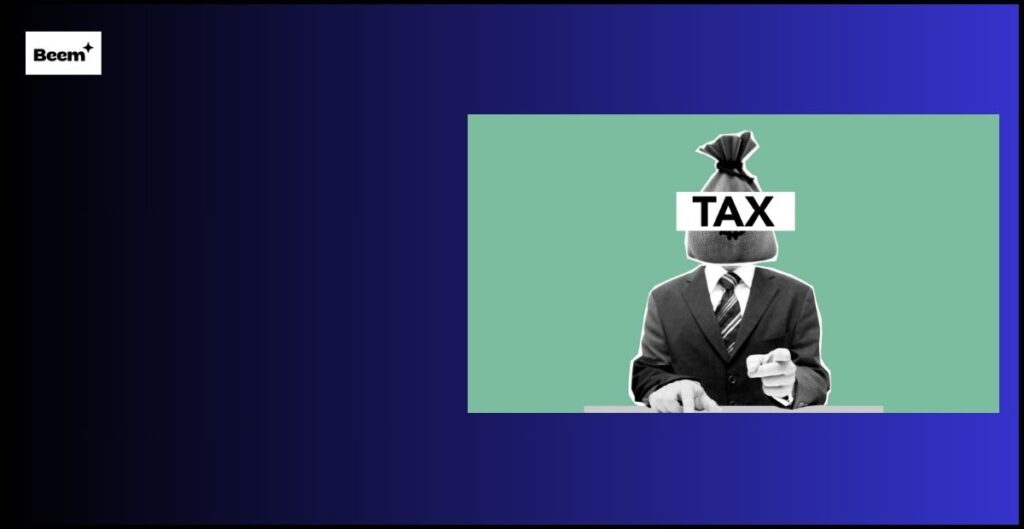In Virginia’s financial framework, the Virginia State Income Tax is a pivotal component in shaping the state’s fiscal foundation. This tax system is crucial in financing various essential state services and initiatives, spanning education, healthcare, and infrastructure development. Virginia employs a progressive income tax structure, incorporating varied tax rates that escalate with increasing income levels.
Virginia’s income tax structure currently encompasses multiple tax brackets associated with distinct rates, facilitating a fair and graduated taxation system. This progressive approach aspires to distribute the tax burden equitably among residents based on their income thresholdsbee. The state’s income tax rates start at 2.00% for lower income brackets and rise to 5.75% for higher income earners, showcasing a tiered approach to taxation.
Effectively navigating Virginia’s tax framework necessitates a comprehensive understanding of these tax brackets, rates, and associated deductions or exemptions. Furthermore, considerations related to filing status, allowances, and potential legislative changes underscore the complexity of managing one’s tax obligations. Let’s delve deeper into the intricacies of Virginia State Income Tax, exploring its rates and implications to better comprehend its impact on taxpayers.
Does Virginia Have a State Income Tax
Yes, Virginia has a state income tax. Virginia requires residents and nonresidents earning income within the state to pay taxes. Income tax rates in Virginia range from 2% to 5.75%. Additionally, there’s a general sales tax of 5.3%, containing a 4.3% state tax and a 1% local tax, with potential additional taxes in certain regions.
Income tax rates vary as per your income level in Virginia. For example, if you file as a single person and your income surpasses $17,000 or as a couple exceeding $34,000, you’ll face the top rate of 5.75%.
Virginia provides opportunities to lower your tax burden through deductions and credits. These include standard deductions, itemized deductions, and credits for dependent care or taxes paid to other states. Leveraging these deductions and credits can significantly reduce your overall tax liability in Virginia.
Virginia State Income Tax Rates and Tax Brackets
Virginia’s income tax structure follows a progressive system, ranging from 2% to a maximum of 5.75%. Virginia’s highest rate is slightly below average compared to other states with income taxes. Regarding state and local rates, the overall average of 5.75% in Virginia stands among the nation’s lowest. Property and fuel taxes in the state are also below the national averages.
Virginia establishes four tax brackets, with varying rates depending on your income. Even though lower earners face lower rates, the top bracket kicks in at just $17,000 in taxable income. This implies that most taxpayers in Virginia will pay the highest rate of 5.75% on a portion of their income. Here are the tax brackets for all taxpayers:
- Income ranging from $0 to $3,000 falls into a 2% tax bracket, wherein the tax owed is calculated as 2% of the taxable income within this range.
- For earnings between $3,001 and $5,000, the tax rate is 3%. Taxation begins at $60, plus 3% over $3,000.
- In the income bracket of $5,001 to $17,000, there’s a 5% tax rate. Taxation starts at $120, coupled with 5% of the amount exceeding $5,000.
- Any income above $17,000 is taxed at a rate of 5.75%. Taxation commences at $720, plus 5.75% of the income exceeding $17,000.
This table lists the state income tax rates and brackets for single filers and married couples filing jointly in Virginia as of January 1, 2024.
| Filing Status | State | Rates | Brackets |
| Single Filer | Virginia | 2.00% | > $0 |
| 3.00% | > $3,000 | ||
| 5.00% | > $5,000 | ||
| 5.75% | > $17,000 | ||
| Married Filing Jointly | 2.00% | > $0 | |
| 3.00% | > $3,000 | ||
| 5.00% | > $5,000 | ||
| 5.75% | > $17,000 |
The Virginia state income tax returns for the 2024 tax year should be filed by May 1, 2024. Understanding these brackets helps taxpayers estimate and plan for their tax obligations effectively.
What is Virginia Standard Deduction?
Virginia has made changes to its standard deduction for individual income taxes. The 2022 standard deductions of $4,500 for singles and $9,000 for married couples nearly doubled in the budget bill. For tax years starting from January 1, 2022, until January 1, 2024, the new standard deduction became $8,000 for singles and $16,000 for married couples, halved for individuals filing separately.
From January 1, 2024, until January 1, 2026, the standard deduction will rise to $8,500 for singles and $17,000 for married couples, again halved for separately filing spouses. However, these increases rely on the Virginia Auditor of Public Accounts confirming a certain level of individual withholding growth from July to December 2023.
Starting in 2026, the standard deductions are slated to revert to their 2019 levels of $3,000 for singles and $6,000 for married couples. These alterations impact how much of your income gets taxed, potentially reducing the amount subject to taxes for many Virginia residents.
How to Calculate Virginia State Income Tax
Calculating your Virginia state income tax involves using Beem’s free tax calculator or Virginia’s tax brackets. To calculate your Virginia state income tax, follow these steps:
- Determine Taxable Income: Start with your total income for the year. Subtract any deductions you’re eligible for, such as the standard deduction or itemized deductions.
- Identify Tax Rate: Virginia uses a progressive tax system with different rates for various income brackets. Find your taxable income in the tax brackets to determine the applicable rate.
- Apply Tax Rates: Once you know your income bracket, apply the corresponding tax rate to the income within that bracket.
- Factor in Credits and Withholdings: Consider any tax breaks you qualify for, such as child care credits or credits for tax paid to other states. Also, factor in any taxes already withheld from your paycheck throughout the year.
- Complete Tax Forms: Use Virginia’s tax forms, such as Form 760, to calculate your final state income tax. These forms help you compute your total tax liability, incorporating all the deductions, credits, and taxes owed or already paid.
To compute your tax, use this formula:
Tax = Fixed Tax Amount + (Percentage Rate × Excess over Threshold).
Once you know your income bracket, apply the corresponding tax rate. For instance, if your taxable income is between $5,001 and $17,000, you’d pay $120 plus 5% of the excess over $5,000. If your income surpasses $17,000, you will pay $720 plus 5.75% of the amount exceeding $17,000.
For example, if your taxable income is $54,000, your tax would be $720 plus 5.75% of the amount over $17,000. To compute this, you’d add $720 to 5.75% of the excess ($37,000). This equals $2,127.50, rounded to $2,848.
Do I Have to Pay Virginia State Income Tax?
If you earn income from Virginia and your Virginia adjusted gross income (VAGI) exceeds specific thresholds, you’re obligated to file a Virginia tax return. This applies whether you’re a resident, a part-year, or a nonresident. The conditions necessitating a Virginia tax return include filing a federal tax return and having a VAGI surpassing $11,950 for single filers or those filing separately or $23,900 for married couples filing jointly.
Your Virginia-adjusted gross income typically aligns with your federal-adjusted gross income but involves specific additions and subtractions. If your income falls within these parameters and meets the criteria mentioned, filing a Virginia tax return is crucial. Understanding these requirements helps ensure compliance with Virginia state tax regulations and avoids potential penalties for failure to file when necessary.
How to Pay Virginia State Income Tax?
Paying your Virginia state income tax provides several convenient options:
- Credit Card or Check: Use Invoice Cloud to pay using a major credit card. Be aware that a small fee may apply. Check online for details about the associated fees before proceeding.
- Online Banking: Settle your Virginia state income tax through your online bank account. Remember to include all necessary tax account numbers with your payment details for a smooth transaction.
- By Mail: You can also opt to mail your tax payment. Follow the instructions carefully to ensure your payment reaches the correct department accurately and on time.
- In-person: You can pay tax by visiting the Virginia State Income Tax office.
Do I Qualify as a Resident for Virginia State Income Tax?
For Virginia income tax, residency status matters. Virginia has three types of residency statuses that decide how much of your income gets taxed by the state. Your residency status determines the extent of your tax obligations in Virginia, impacting the portion of your income subject to taxation by the state.
Resident Status Rules
For Virginia income tax, being a resident depends on where you spend time or live during the tax year. If you were present, lived, or had a place of abode in Virginia for more than 183 days (not necessarily consecutive), you’re considered a resident and use Form 760 to file your taxes.
Some scenarios label you as a Virginia resident for tax purposes. Spending over 183 days in Virginia in a year counts. Also, if you’re from another state but attend college in Virginia or a Virginia resident studying in another state, you might still be considered a resident for tax reasons.
Remember, if you’re a Virginia resident and your spouse isn’t, you can’t file a joint state tax return here. To understand all the rules governing residency status determination in Virginia, refer to the Virginia Department of Taxation website for comprehensive information.
Part-Year Resident Status Rules
Part-year residency in Virginia for tax purposes applies if you lived in or had a place of abode in Virginia for a specific duration during the tax year but not for the entire year. It involves transitioning between being a resident and a nonresident.
Part-year residency can occur if you moved into or out of Virginia within the tax year or lived there for less than 183 days, not meeting the full residency criteria. Residents file Form 760PY, designed explicitly for part-year residents, to report income earned while living in Virginia and income earned after leaving or before moving to the state.
This status involves unique tax considerations, determining which income is taxable in Virginia and which isn’t. It’s essential to understand the rules and use the appropriate forms when filing taxes as a part-year resident in Virginia.
Nonresident Status Rules
Nonresidents earning income from Virginia sources might have to pay Virginia state tax, even if living in another state. Suppose you made money from Virginia-related activities like providing services, renting from Virginia properties, selling or transferring real estate in Virginia, or gaining income from a business, trade, or profession in Virginia. In that case, you might owe Virginia state taxes.
Despite living elsewhere, you might need to file a Virginia state tax return if you received income from these Virginia-related sources. Reporting this income ensures compliance with Virginia state tax regulations, reflecting the income earned from Virginia sources even if you’re a nonresident living in another state. Understanding these rules is essential for accurately fulfilling tax obligations to Virginia as a nonresident.

Where is My Virginia State Income Tax Refund?
To track your Virginia state income tax refund, utilize the “Where’s my Refund” tool online or call 804.367.2486 for the Virginia Department of Taxation’s automated refund system. These options operate round the clock, seven days a week, providing the exact details as customer service representatives without the wait.
The “Where’s My Refund” tool updates your refund status in the processing cycle. Once your return gets processed, the application indicates the date your refund was sent. Remember that each tax return is unique, so processing times differ, resulting in varying refund timelines. Use these tools to check the progress of your Virginia state income tax refund efficiently and reliably without having to wait in phone queues.
Why Did My Virginia State Income Tax Increase
Several factors could lead to an increase in your Virginia state income tax:
- If your income increased from the previous year, you might be in a higher tax bracket, resulting in a higher tax liability.
- Alterations in state tax laws or rates can impact the amount of tax you owe. Changes in deductions, credits, or exemptions can also influence your tax liability.
- If you lost certain deductions or credits that previously lowered your tax bill, this loss could increase your debt.
- Changing your filing status, such as transitioning from single to married or vice versa, can affect your tax obligations.
- Additional income streams or sources like investment gains or rental income might propel you into a more increased tax bracket, leading to a higher tax bill.
- Selling property or investments might lead to capital gains, increasing your taxable income and tax liability.
Understanding the specific factors contributing to your increased state income tax requires reviewing your circumstances and comparing them to Virginia’s current tax laws and regulations. Consulting with a tax expert can provide clarity and guidance in such situations.
Virginia Sales Tax
Virginia’s sales tax comprises a base rate of 4.3% and a 1% statewide local rate, totaling a minimum of 5.3%. Yet, specific regions have varying additional rates. For instance, areas like Northern Virginia, Central Virginia, and Hampton Roads tack on an extra 0.70%, reaching a 6% total. In contrast, cities in Halifax County add 1%, making it 6.3%. Meanwhile, communities in the Historic Triangle collect 1.7%, raising their sales tax to 7%.
Certain items enjoy a reduced 2.5% tax rate in Virginia. This includes alcoholic beverages, tobacco, prepared food, seeds, plants grown for food, and select personal hygiene products like diapers and sanitary items. However, most medicines, including nonprescription drugs, are exempt from sales tax in the state.
Virginia also holds a three-day sales tax holiday in early August, allowing tax-free purchases up to specific prices on various items. These include hurricane preparedness equipment, clothing, school supplies, and energy-efficient products like Energy Star or WaterSense items, offering a tax break to consumers during this period.
Capital Gains Tax
In Virginia, capital gains, such as profits from selling a home, are taxed as regular income. This means they’re subject to the top income tax rate of 5.75%. When you sell an asset, like a house, and make a profit, that gain is treated as part of your regular income for tax purposes in Virginia. The rate applied to these gains aligns with the highest income tax rate in the state.
Virginia Property Tax
In Virginia, county and city governments collect property taxes at the local level. On average, Virginians pay an effective property tax rate of 0.75%, which is relatively low and ranks 21st among all states. This rate signifies that homeowners typically pay around 0.75% of their property’s value in taxes annually. However, it’s essential to note that property tax rates vary across different locations within Virginia, determined by the local county or city government.
Understanding property tax rates is crucial for those considering refinancing or purchasing a new home. Detailed information about getting a mortgage and specific mortgage rates for each county in Virginia can be found in our Virginia mortgage rates guide, aiding individuals in making informed decisions about homeownership.
Virginia Estate Tax
Currently, Virginia doesn’t impose an estate tax, joining 38 other states that don’t tax estates of any size. Both estate and inheritance taxes were eliminated in Virginia after July 1, 2007.
Before July 1, 2007, Virginia had an estate tax linked to the federal credit for state death taxes. Yet, following the removal of the federal credit, Virginia’s estate tax was effectively repealed. However, specific remainder interests might still be subject to the inheritance tax. For additional details, refer to Public Document 15-93’s “Virginia Estate and Inheritance Taxes” section.
Corporate Income Tax
Virginia imposes a corporate income tax rate of 6% on Virginia taxable income. Corporations across multiple states must distribute and allocate their income using Virginia Schedule A.
All corporations must pay an annual income tax return (Form 500) and settle any owed tax. Corporations can efficiently file their returns and fulfill their tax obligations using approved software products.
However, certain Virginia corporations exclusively conducting business within the state and having federal taxable income not exceeding $40,000 for the year might qualify to electronically file a simplified version of the return (eForm 500EZ) for free using eForms. Corporations can complete tax payments using their bank account details if necessary. Refer to eForm 500EZ for complete eligibility criteria and instructions.
5 Things To Know About Virginia Income Tax
Are you a Virginia Income taxpayer for the year 2024? Here are five essential things to know about Virginia income tax:
Filing Deadline and Special Rules: Virginia’s tax filing deadline for 2024 is May 1. Military members or individuals living abroad might have special rules that apply to their tax situations.
Tax Software and Free File Program: Tax software can handle state taxes, but sometimes an extra fee applies. Check if you qualify for the IRS Free File program for assistance.
Checking Refund Status: To track your Virginia state tax refund, you can conveniently check its status online, ensuring you stay updated on its progress.
Reciprocity with Certain States: Virginia has reciprocity with Kentucky, Maryland, Pennsylvania, West Virginia, and Washington, D.C. This arrangement means residents with limited presence in these states are taxed solely by Virginia, and vice versa for residents of those states with a limited presence in Virginia.
Payment Plans for Tax Bills: If you can’t cover your tax bill and owe less than $25,000, Virginia offers accessible payment plans. These plans can be set up online or over the phone, providing flexibility in managing your tax obligations.
Conclusion
Virginia state income tax requires understanding its brackets, rates, and deductions. Virginia offers competitive tax structures with rates ranging from 2% to 5.75%. The state’s average sales tax is low, and property taxes are below the national average, benefiting taxpayers.
Differentiating between residency statuses—residents, part-year residents, and nonresidents—impacts tax obligations. Staying updated on changes, utilizing resources to track refunds, and exploring payment plans for tax bills are helpful strategies.
Being familiar with Virginia’s tax brackets and residency classifications is essential. It ensures compliance and helps leverage available deductions and credits, which can significantly reduce tax burdens. Keeping up with tax law changes, using refund-tracking tools, and exploring payment plans are intelligent strategies. Staying informed enables efficient management of tax responsibilities and helps individuals make well-informed financial decisions in Virginia.
FAQs
Is Virginia a high-tax state?
Virginia doesn’t typically fall into the category of high-tax states compared to others. Its income tax rates range from 2% to 5.75%, placing it within a moderate range. Moreover, the average sales tax in Virginia is relatively low, and property taxes are below the national average, which benefits taxpayers. These factors collectively position Virginia as a state with competitive tax structures compared to higher-tax jurisdictions.
Is Virginia a tax-friendly state?
Virginia can be considered tax-friendly in some aspects. Its income tax rates, although they do exist, are relatively moderate, and the average sales tax is low. Additionally, property taxes in the state are below the national average, offering a favorable environment for homeowners. However, the level of tax-friendliness may vary based on individual circumstances and the specific tax implications they face.
Is Virginia a good place to live for taxes?
Virginia can be an attractive place to live for tax reasons, especially considering its moderate income tax rates, lower-than-average property taxes, and relatively low average sales tax. These factors collectively contribute to a favorable tax environment for residents. However, the perception of Virginia being an excellent place to live for taxes may vary depending on individual financial situations and priorities.
How much of my paycheck goes to taxes in Virginia?
The portion of your paycheck allocated to taxes in Virginia depends on various factors such as your income level, deductions, filing status, and credits. Virginia’s income tax rates vary from 2% to 5.75%, which are applied progressively based on income brackets. To determine the exact percentage of your paycheck going to taxes, it’s crucial to calculate it based on your specific financial circumstances.
Is Virginia’s tax income earned in another state?
Virginia has specific rules for taxing income earned in another state. Generally, if you’re a Virginia resident and earn income in another state, that income may be subject to tax in Virginia. However, Virginia allows a credit for taxes paid to other states, which can offset the tax liability on income earned outside Virginia.
Does the state of Virginia tax Social Security income?
In Virginia, Social Security benefits are generally not taxed. Virginia doesn’t tax Social Security retirement benefits, aligning with federal tax treatment. Therefore, Social Security income is typically exempt from state income tax in Virginia.
Can Virginia state income tax go up?
Virginia state income tax rates and policies can be subject to change based on legislative decisions and economic factors. Changes in tax laws or adjustments to tax rates could increase Virginia state income tax. Taxpayers should stay updated on any proposed changes to state tax laws that might impact their tax liabilities.
Do seniors have to pay state income tax in Virginia?
In Virginia, seniors generally follow the same income tax rules as other residents. Social Security benefits usually are not subject to state income tax in Virginia, and other retirement incomes may qualify for exemptions or discounts, depending on individual circumstances.
Does Virginia have a state income tax for the military?
Virginia taxes military income for residents stationed within the state. However, certain military-specific income, such as retirement pay, might be eligible for exemptions or deductions. Nonresidents stationed in Virginia usually do not have to pay Virginia state income tax on their military income.
What are Virginia state income taxes for LLCs?
Virginia LLCs operate as pass-through entities, meaning they don’t directly pay federal taxes. Profits flow through to individual owners, who report this income on personal tax returns and pay the 15.3% federal self-employment tax (12.4% for Social Security, 2.9% for Medicare). Although Virginia boasts a low 6% corporate income tax rate, it doesn’t apply to LLCs, emphasizing their tax obligations at the individual level. Understanding Virginia’s LLC tax structure is crucial for owners navigating tax responsibilities.































